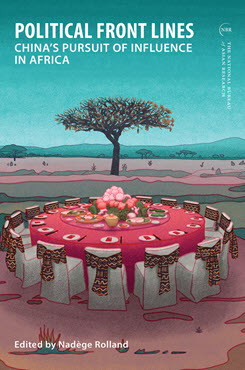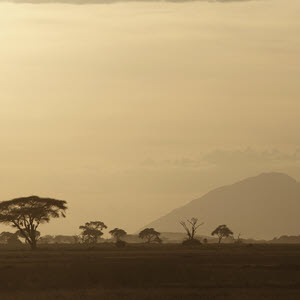Essay from NBR Special Report no. 100
United Front Work and Political Influence Operations in Sub-Saharan Africa
This essay provides an overview of the goals, methods, and impact of the united front work and political influence operations conducted by the Chinese Communist Party (CCP) in sub-Saharan Africa, including via overseas Chinese organizations, friendship groups, and business networks, as well as through media and universities.
EXECUTIVE SUMMARY
MAIN ARGUMENT
The CCP’s objectives in sub-Saharan Africa are intrinsically linked to its overall objectives of turning China into a global military, economic, and normative power and thereby buttressing the party’s legitimacy by ensuring both continued economic growth and international respect for China. Africa, as part of the “global South,” forms an important part of the CCP’s goal of creating the impression of nearly universal international support for the People’s Republic of China (PRC). The basics of united front work and political influence operations in sub-Saharan Africa follow a pattern that is very similar to how the CCP operates in other parts of the world. Yet, although the CCP has a certain playbook that it replicates wherever it goes, some room for local experimentation and individual initiative remains. To evaluate effectiveness, more data and in-depth studies are needed; however, a preliminary assessment suggests mixed results that vary depending on the local context. Overall, the CCP’s focus on getting superficial statements of praise from elites rather than genuinely trying to win over the wider public or changing undesirable behavior may explain why China has lost in popularity in some countries over the past five years, despite arguably intensifying united front work over the same period.
POLICY IMPLICATIONS
- Invest in research. More research on united front activities and public perception of the PRC as well as its main narratives is needed to better understand the extent and limits of united front work.
- Show up. In large part, the PRC gains ground with African political elites simply by showing up and taking its counterparts seriously. One relatively easy way to counter united front activities at this level is for Western governments to meet with their African counterparts more often, especially in democratic countries and where this is possible without siding with an autocratic government against the local public.
- Address economic needs. When African political elites side with the PRC, this is rarely exclusively the outcome of united front work. Any attempt to counter united front work must go beyond the rhetorical level and address local economic and infrastructure needs.
Mareike Ohlberg is a Senior Fellow in the Asia Program at the German Marshall Fund, based in its Berlin office.



 Into Africa: China's Emerging Strategy
Into Africa: China's Emerging Strategy
